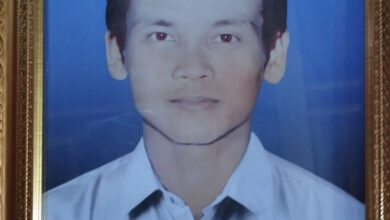
After first defying government orders to block several ethnic news websites, Telenor has decided to fully comply, the Norwegian telecom announced in a statement Monday night.
In late March the ministry of transport and communications ordered Telenor and other telecom companies to block a total of 221 websites it accused of broadcasting either explicit sexual content, child sexual abuse or fake news and misinformation.
Under section 77 of Myanmar’s Telecommunications Law, the government can order internet access restrictions in “emergency situations.”
On March 23, Telenor blocked 154 websites it said the government classified as having “adult/explicit content” but refused to block the sites listed as “fake news,” saying it could not find a sufficient legal basis to do so.
On March 30 it reversed that decision, blocking all 221 websites.
“After further dialogue with (the communications ministry),” the company’s statement read, “Telenor has assessed that the risk involved in not following the directive as regards fake news is likely to have wider implications in terms of servicing the public.”
Over the next 24 hours, several journalists including and an editor in chief were detained.
Telenor representatives were not available for comment.
On March 30, Nay Myo Linn, editor-in-chief of the Mandalay-based Voice of Myanmar, was arrested and charged under the country’s Counter-Terrorism Law for an interview he conducted with the spokesperson of the Arakan Army (AA), the ethnic armed group warring with the Myanmar military in northern Rakhine state.
The government declared the AA a terrorist organisation last week. The interview was published Monday.
On March 31 three reporters, including two interns, from Nirinjara – an ethnic news site based in the Rakhine capital Sittwe – were detained for six hours before being released around midnight.
Their editor in chief, Khine Myat Kyaw, also faces terrorism charges. Myanmar Now learned Monday that he has gone on the lam.
Journalists and freedom of speech activists have called on the government to drop the charges, accusing it of using the vaguely-worded law to suppress dissent and stifle free speech.
Ethnic news targeted
There are four major telecom providers in Myanmar: MPT, Mytel, Ooredoo and Telenor.
Mytel is a joint venture between the military-owned Myanmar Economic Corporation (MEC) and Viettel, a Vietnamese telecommunications company. Ooredoo is Qatari-owned.
On March 21 the communications ministry, taking suggestions from several other government ministries, asked all four to block websites it said were broadcasting ‘fake news’ or graphic sexual content, said Myo Swe, the ministry’s director.
“It isn’t just our ministry. Every ministry reviews sites it wants blocked. Maybe these websites are being blocked because they post fake news,” he said, adding that sites are often submitted for review by the public as well.
Representatives from Narinjara and Development Media Group (DMG) – two well-regarded ethnic news sites that cover the fighting in Rakhine in both Burmese and English – told Myanmar Now that access to their sites have been blocked on MPT and Mytel networks since early last week.
DMG said its site was blocked by all four telecoms on March 24, but that Telenor had briefly lifted the ban on March 26. It is now blocked by every mobile internet provider in Myanmar.
“Strange things happened to the site before access was blocked. The traffic and load time both shot up. We tightened our cybersecurity a little bit, and since then the site has been inaccessible on mobile phones,” Nyo Tun, website operations manager for DMG, told Myanmar Now.
DMG sent a letter to the telecommunication operators seeking clarification but has not yet received a response.
Narinjara staff told Myanmar Now that MPT began blocking their site on March 23. The site is now unreachable on all networks but Ooredoo.
Narinjara video editor Naung Khaing Aung told Myanmar Now his organisation has not reached out to the telecom companies yet.
Myanmar Now is still trying to reach telecom company representatives for comment.
The AA website is unavailable on Mytel, Telelnor and MPT networks, but Myanmar Now was able to access it on Ooredoo.
The website of the Karen News Agency, based in Karen state, also appears to be inaccessible on all networks but Ooredoo.
Since March 23, all four operators have blocked the popular pornography websites PornHub.com and YouPorn.com.
Vague orders, excessive measures
Myo Swe claims many of the sites it listed as ‘fake news’ were spreading misinformation about the Covid-19 pandemic.
But the government has refused to release the list of ‘fake news’ websites they submitted to telecom companies, making it difficult to assess these claims – nonetheless so considering Telenor could not initially find legal grounds to comply with the order.
“We recognize that tackling disinformation and online falsehood about COVID-19 is an important part of the fight against the pandemic,” the company said in its latest statement, adding that it would stand by the country’s efforts to spread access to reliable information on the disease.
“Telenor appears to have taken a decision based on the risk of having government interrupt their service to millions of users at this time of emergency,” said Myanmar Centre for Responsible Business director Vicky Bowman.
But, she told Myanmar Now, she is disappointed with the government’s approach.
She said it needs to be transparent with both telecom operators and the public about what they consider to be fake news.
“Some of the sites which have been blocked are ethnic news agencies covering a variety of content, and it is unclear why they should be included in emergency measures apparently relating to Covid,” she said.
“Takedown requests – if they need to occur – should be specific to pieces of content, not censorship of entire websites.”
The blocks apply not just to mobile phone users in Rakhine but throughout the country.
Myanmar ICT for Development Organisation (MIDO) executive director Htike Htike Aung told Myanmar Now her organisation is creating a running list of human rights and ethnic media websites that have been blocked so far and will push to restore access to them.
“If we can prove that the government has directed providers to censor these websites, it would prove a massive assault on freedom of expression and the free press. We need information now more than ever – it’s a matter of life and death,” she said.
Transparent guidelines are needed for applying section 77 of the Telecommunications Law to ensure it’s not used “to undermine the right to freedom of expression,” Bowman added.
Internet blackout
The government has blocked internet access outright in several townships in northern Rakhine and southern Chin state for most of the past nine months, where fighting has been ongoing between the AA and the Myanmar military.
This blackout is particularly worrying during the current coronavirus pandemic, said speaker San Kyaw Hla in a March 25 parliamentary session.
“I am especially concerned for our 150,000 citizens currently living in refugee camps there,” he said.
Minbya township MP Hla Thein Aung told Myanmar Now that the Rakhine state parliament and civil society groups have repeatedly asked the government to restore internet access but that the government has not responded.

![Resistance fighters holding heavy weapons ammunition in central Myanmar. (Photo: Freedom Revolution Force [FRF])](https://myanmar-now.org/en/wp-content/uploads/sites/5/2024/04/438869056_443267851680128_1706386881626943924_n-390x220.jpeg)

